
Đáp án bài tập tiếng anh 7
1
LÖU HOAÈNG TRÍ
KEYS
BAØI TAÄP TIEÁNG ANH
7
(THEO CHÖÔNG TRÌNH THÍ ÑIEÅM 2015)
PEARSON
Taøi lieäu phaùt mieãn phí, khoâng baùn
NHAØ XUAÁT BAÛN ÑAÏI HOÏC SÖ PHAÏM TP. HOÀ CHÍ MINH
2
Unit 1
A. PHONETICS
I.
/6/ /3:/
again; camera; natural; signal; yesterday;
final; assistant; neighbour; culture
bird; word; learn; turn; girl; world; first;
third; heard; birthday; sir
II. 1. A 2. A 3. C 4. D 5. B
B. VOCABULARY & GRAMMAR
I.
1. go: cycling, skating, swimming, camping
2. do: athletics, karate, judo, aerobics, gardening, gymnastics
3. collect: bottles, dolls, coins
4. play: basketball, football, tennis, computer games, table tennis
5. take: photos, stamps
6. watch: TV, films, cartoons, music videos
II. 1. doing 2. collecting 3. listen 4. to play 5. gone 6. reading
III. 1. swimming 2. music 3. films 4. basketball 5. photography
6. books 7. skating 8. chess
V. 1. give 2. practises 3. will see – Will you go 4. will give
5. will meet 6. Will you be 7. live – don’t see 8. will go
V. 1. stamp collection 2. butterfly collection 3. growing plants
VI. 1. plays 2. goes 3. goes 4. listens 5. does
6. plays 7. go 8. play 9. watch
VII. 1. Does – listen to 2. Do – going 3. Do – eating 4. Do – doing
VIII.
1. Mike loves playing football. 2. He loves walking in the mountains.
3. He doesn’t mind going to school. 4. He doesn’t like listening to music.
5. He hates tidying his room. 6. He doesn’t like doing (his) homework.
IX. 1. do you like going 2. do you like sitting next to
3. of music do your friends like listening 4. do you enjoy doing
C. SPEAKING
I. A: Hi. Tell me about your collections. What are these?
B: They’re my favourite T-shirts.
A: Oh, they’re interesting. And what are those?
B: Those are posters of my favourite singers.
A: Singers? They’re very nice. Thank you.
II. 1. I was eight 2. get them from discarded envelopes
3. I enjoy it because it is interesting and fun. 4. is your hobby
5. reading/ listening to music…
D. READING
I. 1. A 2. C 3. B 4. A 5. D
II. 1. False 2. True 3. False 4. True 5. False
III.
1. Because it can help to increase your strength and energy, giving you a stronger heart.
2. Because you don’t carry the weight of your body on your feet when cycling.
3. If you do too quickly, it will have bad effects.
3
4. You should cycle twice or three times a week.
5. If you find you are in pain, you will stop and take a rest.
E. WRITING
I. I have an unusual hobby: it is collecting buttons.
When I was ten, I lost a cute button of my shirt.
I had to find another button to replace.
Buttons have a long history.
Buttons are made of different materials.
They have various sizes, shapes, designs, and colours.
Button collecting is not expensive, and it is useful in many ways.
I collect rare buttons from other countries.
II. 1. collecting books 2. books about animals and plants
3. books about school subjects 4. bookshops
5. second-hand book stalls 6. friends or family members
7. get information and facts 8. knowledge and understanding
9. larger 10. a library
TEST (UNIT 1)
1. D 2. B 3. B 4. D 5. B 6. D 7. D 8. C 9. A 10. A
11. B 12. C 13. B 14. C 15. A 16. B 17. A 18. D 19. C 20. B
21. D 22. B 23. B 24. D 25. A 26. C 27. C 28. B 29. D 30. B
31. chess 32. gardening 33. basketball 34. cycling 35. dancing
36. ice skating 37. jogging 38. bird-watching 39. gymnastics 40. photography
41. find 42. follow/ have 43. being/ working 44. cycling 45. sports
46. books 47. start/ begin 48. look 49. pair 50. expensive/ costly
51. collecting 52. watching – will go 53. doing 54. plays 55. have collected
56. I buy stamps from the post office. I also ask the members of my family and my relatives.
57. Sometimes I exchange my stamps with other people.
58. I divide my stamps into different groups, such as animals, plants, birds, and so on.
59. Because I know more about people, animals, and plants.
60. I will collect more stamps.
61. D 62. C 63. A 64. A 65. D 66. True 67. True 68. False 69. True
70. False 71. A 72. C 73. B 74. D 75. B
76. When did you start your hobby?
77. We find making models very interesting because we should be creative.
78. I think in the future people will take up more outdoor activities.
79. My best friend does not like mountain climbing because he is afraid of heights.
80. My sister enjoys cooking and making new dishes on her own.
Unit 2
A. PHONETICS
I.
/f/ /v/
knife; cough; leaf; paragraph; phonetics;
rough; life; tough; laugh; enough
knives; of; level; leaves; Stephen; live; very;
conversation; move; lovingly
II. /f/: Fred’s; flower; front; far; Faraday
/v/: vase; living; very; vase; never; very; November; travelled; volleyball
4
B. VOCABULARY & GRAMMAR
I. 1. stomachache 2. earache 3. sore throat 4. cold 5. toothache
II. 1. toothache 2. backache 3. headache 4. stomachache 5. earache
6. flu 7. sore throat 8. cough
III. 1. a lot 2. to 3. this 4. got 5. take 6. shouldn't 7. hurt 8. of
IV. 1. less 2. more 3. less 4. less 5. more
6. more 7. less 8. more 9. less 10. less
V. 1. and 2. and 3. so 4. and 5. and 6. so 7. and 8. but
C. SPEAKING
I. 1. hurts 2. my geography lessons until midnight 3. in the world
4. my stomach hurts 5. of tea and an aspirin, Tom? 6. get up 7. of bed now, Tom!
II. 1. head 2. broke 3. hurt 4. toothache
III.
1. A: What’s the matter?
B: I have flu.
A: Poor you! You should be at school. You should stay at home.
2. A: What’s the matter?
B: I have an earache.
A: Poor you! You should go to the doctor. You shouldn’t wait for it to be better.
3. A: What’s the matter?
B: I have a stomachache.
A: Poor you! You should lie down. You shouldn’t eat anything.
4. A: What’s the matter?
B: I have a headache.
A: Poor you! You shouldn’t read any books. You should take a painkiller.
5. A: What’s the matter?
B: I have a sore throat.
A: Poor you! You should take some medicine. You shouldn’t eat any crisps.
D. READING
I. 1. I can’t wait 2. I hate to say this 3. It will cost you 4. With a bit of luck
Answers:
1. David wants to see inside Buckingham Palace.
2. No, they aren’t.
3. Susan feels ill.
4. He wants them to go home with Susan.
5. Yes, they were. Because they can get their money back.
II. 1. Because everyone suffers from the common cold at some time or other.
2. No, it isn’t a serious illness.
3. It can make you cough less, make you feel better, and stop your nose running for a while.
4. People also drink a lot of hot water with sugar, lemon juice.
5. Because it helps provide people with a lot of vitamin C.
E. WRITING
Hi Daisy,
Sorry to hear that you are ill. Don’t worry. I had it last week and I’m much better now. This
is the advice the doctor gave me. You should go to bed early, drink a lot of water. Besides
that, you should check your temperatures, keep warm, and have a lot of rest. You shouldn’t
go out. You shouldn’t open the windows or do any housework.
Get better soon.
Love
5
TEST (UNIT 2)
1. B 2. A 3. C 4. D 5. C 6. D 7. C 8. D 9. D 10. D
11. A 12. D 13. B 14. C 15. C 16. D 17. D 18. B 19. B 20. D
21. B 22. D 23. A 24. A 25. A 26. A 27. D 28. B 29. A 30. C
31. well 32. burn 33. temperature 34. stomachache 35. pain
36. cough 37. toothache 38. sick 39. hurts 40. headache
41. enough 42. more 43. when 44. more – less 45. problems
46. d 47. e 48. b 49. i 50. a 51. c 52. j 53. g 54. f 55. h
56. C 57. A 58. C 59. C 60. B 61. A 62. C 63. D 64. D 65. A
66. T 67. F 68. T 69. T 70. NM 71. F 72. T 73. T 74. NM 75. T
76. You should not play more computer games in your free time.
77. The doctor is asking Mai some questions about her/ the health problems.
78. Vitamins play an important role in our diet.
79. We should keep our bodies warm to avoid flu or a cold.
80. Getting enough rest helps you (to) concentrate well at school.
Unit 3
A. PHONETICS
I.
/9/ /k/
green; game; garden; get;
group
colour; school; kitchen; chemistry; chemical; culture;
cold; classroom; sick; clothes; call; community; traffic;
cancel; clean;
II. 1. A 2. A 3. B 4. D 5. D
B. VOCABULARY & GRAMMAR
I. 1. a 2. e 3. g 4. b 5. d 6. h 7. c 8. f
II. 1. clean: school yard; neighbourhood; streets; dirty tables
2. donate: old clothes; books; notebooks; blood; money
3. help: elderly people; homeless people; street children; local people; poor children
4. provide: fresh water; English lessons; food; opportunities; Internet; evening classes
III. 1. letter 2. hear 3. participate 4. plans 5. collect
6. save 7. earn 8. plant 9. keep 10. do
IV. 1. haven’t seen 2. called 3. has read 4. haven't begun 5. met
6. has been 7. haven’t 8. did – give up 9. has taken 10. Have you washed
V. 1. moved 2. have been 3. have gone 4. spent 5. has explained
6. delivered 7. hasn't finished 8. have visited 9. heard 10. haven't started
VI. 1. have written – wrote 2. did – haven’t done 3. had – have never had
4. has made – made 5. have given – gave 6. has gone – went
7. Did – win – have never won 8. Did – play – Have – played
VII. 1. has won 2. has finished 3. has lost 4. have bought 5. has passed
6. have spent 7. has sent 8. has started/ started
VIII. 1. Have you ever been 2. Did you go 3. went 4. got up
5. have never got up 6. got 7. Have you ever seen 8. went
C. SPEAKING
I. 1. Who were your students? 2. What did you teach them?
3. How about evening classes for adults? 4. How long was each class?
5. What were the evening classes like?
6
II. A: What kind of volunteer work have you done?
B: We have helped people living in the country.
A: What exactly are you doing?
B: We are teaching the children to read and write.
A: Do you enjoy the work?
B: Yes, I like helping people.
D. READING
I. 1. B 2. A 3. D 4. A 5. C
II. 1. B 2. C 3. C 4. C 5. A
III. 1. True 2. False 3. True 4. True 5. True
IV. 1. B 2. A 3. D 4. C 5. D
E. WRITING
I. 1. I have bought a laptop, but I have not used it.
2. I have written a blog, but I have not uploaded any photos to it.
3. We started the game half an hour ago, but we have not finished it.
4. My dad has been to London, but he has not seen Big Ben.
5. I have read my English book, but I have not done my English homework.
6. They have had lunch, but they have not had dinner.
7. I have downloaded some songs, but I have not listened to them.
II. (Suggested answers)
1. it is very helpful.
2. they are in need/ they have a difficult life/ they live in very bad conditions.
3. ten old books and fifty thousand VND.
4. some street children to read and write in evening classes
5. I have done some volunteering work to help other people.
6. collected garbage and put more dust bins.
7. gave him/ her some old clothes, and some notebooks.
8. it is very dirty.
9. cleaning up their houses.
10. they bring happiness to other people/ others.
TEST (UNIT 3)
1. C 2. D 3. B 4. A 5. A 6. B 7. C 8. A 9. A 10. D
11. A 12. B 13. B 14. D 15. A 16. C 17. B 18. D 19. C 20. A
21. C 22. A 23. C 24. D 25. D 26. D 27. B 28. D 29. D 30. B
31. benefits 32. coupons 33. helping 34. how 35. because
36. donated 37. volunteer 38. offered 39. project 40. collected/ make
41. has turned 42. has just started 43. has done 44. has lost 45. have gone
46. Have you bought 47. have had – gave 48. have watched 49. worked
50. have been 51. and 52. because 53. because 54. because
55. and 56. yet 57. already 58. just/ already 59. already 60. Yet
61. Do you still get wet after the repair? 62. Did they give you anything?
63. What do you think of them? 64. Would you like them to come back?
65. Well, they’ll come back soon, I guess. Well, I have to go. Have a good day.
66. B 67. C 68. C 69. D 70. B 71. B 72. B 73. B 74. A 75. D
76. Have you finished your homework yet?
77. This printer is under guarantee.
78. We haven’t had a vacation since last year.
7
79. They give away warm clothes to homeless people in Ha Noi.
80. Volunteering makes a difference in our community.
TEST YOURSELF 1
1. B 2. D 3. C 4. B 5. D 6. C 7. B 8. D 9. B 10. B
11. D 12. D 13. B 14. C 15. B 16. B 17. B 18. C 19. B 20. D
21. B 22. C 23. D 24. C 25. C 26. toothache 27. headache
28. stomachache 29. pain 30. hurts 31. earache 32. throat 33. cough
34. temperature 35. allergy 36. yet 37. already 38. yet 39. already
40. already 41. yet 42. already 43. yet 44. already 45. yet
46. Have you put 47. have just done 48. haven't started 49. borrowed 50. have already looked
51. hasn’t been 52. have found 53. has it got 54. is 55. have just seen
56. B 57. A 58. B 59. C 60. A 61. A 62. A 63. B 64. A 65. C
66. A 67. C 68. B 69. B 70. B 71. True 72. True 73. False 74. True
75. False 76. Young people of different nationalities go on the expeditions.
77. There are ten expeditions every year.
78. It lasts for ten weeks.
79. They help scientists to do environmental research.
80. We have to speak English to become a volunteer.
Unit 4
A. PHONETICS
I.
/~/ /2/
special; essential; musician; exhibition;
fiction; sunshine; social; machine; sure;
delicious; champagne; attention; discussion;
vision; leisure; closure; treasure; usually;
pleasure; television; measure; occasion;
decision; collage; conclusion
II. /~/: special, traditional, musician, essential, exhibition.
/2/: television, usually, leisure, pleasure, vision, treasures.
B. VOCABULARY & GRAMMAR
I. 1. singing 2. saxophone 3. band 4. concert 5. art 6. painting
II. 1. India 2. weddings 3. drums 4. rap 5. hands 6. trousers
III. 1. worked 2. has helped 3. did 4. won 5. didn't win
6. was 7. has been 8. hasn't won 9. has written 10. has never been given
IV. 1. Rugby isn’t as exciting as football. 2. Viet Nam isn’t as hot as Indonesia.
3. German isn’t as easy as French. 4. Alice isn’t as friendly as Anita.
5. The hotel in Paris isn’t as good as the hotel in London.
V. 1. better 2. more interesting 3. (more) exciting 4. worse
5. better 6. more thrilling 7. as interesting as 8. as good as
VI. 1. as important as 2. most popular 3. easier 4. better 5. as expensive as
6. heavier 7. more suitable 8. the best
VII. 1. most famous 2. the youngest 3. as young as 4. the fastest 5. quicker 6. the biggest
C. SPEAKING
I. 0. j. Hello, Lan. What are you doing now?
1/ f. I’m doing my Math homework.
2/ a. Oh, no. Today is Sunday. Why don’t you relax?
8
3/ g. What should we do?
4/ b. Will you be free this evening?
5/ d. I’m afraid not. I’m going to do my Physics homework.
6/ h. What about going to the movie theater? There’s a good movie on this evening.
7/ k. That’s a good idea. Where can we meet?
8/ i. At my house at 7 o’clock. Is it OK?
9/ e. That’s fine. See you this evening. Bye.
10/ c. Bye. See you then.
II. Mr Davies: Two tickets for The Water Horse, please.
Woman: Adult or child?
Mr Davies: Two adults and two children, please.
Woman: OK, and which performance do you want to see?
Mr Davies: The six o’clock film.
Woman: Two adults and two children at six o’clock. That’s fine.
Mr Davies: How much is that?
Woman: That’s $18 altogether.
Mr Davies: Here you are.
Woman: Thank you. Enjoy the film.
III. 1. Where 2. How 3. much 4. time 5. does
6. start 7. kind 8. remember 9. then 10. after
D. READING
I. 1. Lan and and Mai join the school theater group.
2. They are rehearsing a play for the Teacher’s Day.
3. Lan and Mai are the members of the stamp collector’s club.
4. Hung and Tuan play for the school football team.
5. Ha and Thanh are the members of the school art club
II. 1. There are over 30 schools of rock in different towns in the USA.
2. It’s about a rock musician who became a teacher.
3. He started the first School of Rock in 1998.
4. He teaches them to be rock performers.
5. He has already taught hundreds of young people.
III. 1. A 2. B 3. C 4. C 5. B
E. WRITING
A. Lyle Lovett
1. country 2. made 3. 1986 4. has had
5. won 6. married 7. 1993 8. 1995
B. The Corrs
1. sisters 2. brother 3. Irish folk 4. pop 5. made
6. in 1995 7. have had 8. has…won 9. have…won 10. a single
TEST (UNIT 4)
1. B 2. D 3. A 4. B 5. D 6. D 7. D 8. A 9. A 10. B
11. C 12. D 13. B 14. C 15. C 16. B 17. B 18. A 19. C 20. A
21. C 22. B 23. B 24. A 25. A 26. D 27. C 28. B 29. A 30. D
31. ever 32. just 33. never 34. was 35. sang
36. been 37. did 38. made 39. written 40. watch
41. not as big as 42. the most famous 43. more colourful 44. the most exciting
45. not as good as 46. more friendly 47. the busiest 48. bigger
9
49. more exciting 50. the best 51. C 52. A 53. D 54. B 55. C
56. He usually does his homework, watch some TV, read a book or play the guitar.
57. Thomas has the keyboard and John has the drums.
58. John has written some songs, and his sister sometimes sings with them.
59. They are hoping to play some concerts one day!
60. He sometimes goes on day trips with his family, the best thing is lying on the sand and
listening to music on my iPod.
61. The room at the end of the corridor of the art gallery is not as large as this room.
62. In my opinion, romance films are not as exciting as action films.
63. Picasso’s paintings are not the same as Salvador Dali’s paintings.
64. I am interested in comic books, and my brother is interested in comic books too.
65. My mother doesn’t like thrillers, and I don’t either.
66. Her hobbies are taking photographs and collecting coins.
67. Viet Nam has some kinds of traditional opera, such as “Chèo” or “Cải lương”.
68. I don’t sing as well as my sister.
69. Ballets and modern dance are not the same.
70. The project was not as long as we thought at first.
71. I am happy to hear that you and your family are well.
72. Did you remember the circus (that) we saw last year?
73. The circus is coming again to our city.
74. My father has bought the tickets for the circus.
75. We would like you to go with us. 76. Are you free this weekend?
77. We will meet you at 7 pm outside the theatre. 78. The show begins at 7.30 pm.
79. I hope we will have a good time together.
80. I look forward to seeing you there/ I am looking forward to seeing you there.
Unit 5
A. PHONETICS
I.
/4/ /0:/
bottle; pot; salt; omelette; what; yogurt;
chocolate; dialogue; shopping; lot; got; not;
soft
more; pork; fork; sauce; short; caught;
daughter; audience; morning; talk;
laundry; water
II. 1. B 2. C 3. D 4. C 5. C
B. VOCABULARY & GRAMMAR
I. 1. D 2. B 3. B 4. D 5. D
II.
Food Drink
apples; bread; pork; beef; sausages; eggs;
sandwiches; sticky rice; pizza; noodles;
cheese; pancake; beef noodle soup; toast;
chicken; shrimp; eel soup
coffee; hot chocolate; milk; orange
juice; green tea; mineral water; lemon
tea; yoghurt
III. 1. Are there any cakes? – Yes, there are some.
2. Is there any butter? – No, there isn’t any.
3. Is there any mineral water? – Yes, there is some.
4. Are there any eggs? – No, there aren’t any.
5. Is there any salt? – Yes, there is some.
10
6. Are there any carrots? – Yes, there are some.
7. Are there any apples? – Yes, there are some.
8. Is there any sugar? – Yes, there is some.
IV. 1. some 2. some 3. any 4. some 5. some 6. some 7. any 8. some
V. 1. e 2. g 3. b 4. h 5. c 6. a 7. d 8. f
VI. 1. How much 2. How much 3. How many 4. How much
5. How many 6. How many 7. How many 8. How much
VII. 1. How much water do you drink every day?
2. How many students are there in you class?
3. How many hours do you sleep every night?
4. How much money do you have in your bag or pocket?
5. How many subjects do you study at school?
C. SPEAKING
I.
David: I’m quite hungry. Are there any biscuits?
Susan: I’m not sure. Um, no, there aren’t. There are no biscuits and there
aren’t any cakes but there are some cheese sandwiches.
David: Is there any meat?
Susan: Yes, there’s some cold chicken. And here are some tomatoes.
David: Thanks. Nice chickens! Is there any tomato sauce?
Susan: Yes, there’s a bottle in the bag. Here you are.
David: Great! Yuk! This isn’t the tomato sauce!
Susan: Oh, sorry. My fault. It’s hot chilli sauce!
D. READING
I. 1. c 2. e 3. a 4. b 5. f 6. d
II.1. c 2. f 3. a 4. d 5. e
III.
A.1. amazing 2. famous 3. demonstrations 4. volunteers 5. cows 6. volunteer
B.1. B 2. D 3. A 4. D 5. B
IV.
A/ 1. calories 2. energy 3. snacks 4. sweet 5. salty
6. healthy 7. vitamins 8. sources
B/ 1. It helps you feel great.
2. You can still enjoy your favourite sweet and salty foods.
3. Because they contain calcium and keep your teeth and bones healthy.
4. They keep our bodies healthy and they give us energy to work and play.
5. Because they help you have a healthy heart.
6. We get whole grains from bread, cereal, pasta, and rice.
7. Because they are low in calories and full of vitamins.
8. Fruit and vegetables with darker colours have more vitamins.
E. WRITING
1. First, you put the tea bag into a small cup, and pour slowly boiled water on it.
2. After that, wait for 5 to 7 minutes, then get the tea bag out of the cup.
3. Second, cut the lemon half, and press the water from it, but don’t use its seeds.
4. Next, add some sugar and stir the mixture, and then add some ice.
5. Your drink has already been served, and then pour it into some glasses.
6. Finally, decorate a sliced lemon and some basil leaves on the surface of drink.
11
TEST (UNIT 5)
1. B 2. A 3. C 4. D 5. C 6. C 7. D 8. A 9. D 10. B
11. B 12. D 13. C 14. A 15. D 16. B 17. D 18. B 19. B 20. D
21. D 22. A 23. B 24. B 25. B 26. B 27. D 28. D 29. C 30. D
31. some 32. some – any 33. any 34. some – any 35. any
36. How much luggage do you have?
37. How much paper do you need to write on?
38. How many newspapers does your father read a day?
39. How many litres of water do you drink every day?
40. How much bread do you need to make sandwiches?
41. left 42. a 43. fat 44. for 45. much
46. else 47. kinds 48. with 49. delicious 50. any
51. B. We need 300 grams of eel, 150 grams of rice, fish sauce, ginger, and green onion.
52. A. First, clean rice, pour into the pot and cook until it’s well done, add a little salt.
53. H. You’re welcome. I hope your eel soup will be the best.
54. E. Clean the eel carefully: first use water of lemon, apply it on the body of the eel and
rub it.
55. J. After that, put the eel in a plate and steam it until it’s cooked.
56. G. After steam, separate meat and bone eel carefully. Use the meat only.
57. D. Finally, when rice is well done, add meat eel into the pot, put the fish sauce, sugar,
and pepper to suit your taste.
58. F. I suggest you should eat when it is hot. Add some sliced green onion on the surface of
the dish.
59. C. Thank you very much. Your instructions are very clear.
60. H. You’re welcome. I hope your eel soup will be the best.
61. B 62. C 63. D 64. A 65. B
66. Meals in Viet Nam usually include rice.
67. More foreign restaurants have been opened in Viet Nam since Viet Nam opened its doors
to foreign investors.
68. Young people in Viet Nam now like fast food because of its conveniences.
69. They have lunch somewhere nearby the work places.
70. The most successful Vietnamese fast food chain is Pho 24.
71. People in my town enjoy healthy food and they have three meals a day – breakfast,
lunch, and dinner.
72. At about 7 o’clock in the morning, they often have breakfast.
73. Breakfast is a light meal. But it is considered important. People have breakfast with a
bowl of noodle soup, or noodles with pork (hu tieu), instant noodle or a plate of sticky
rice (xoi).
74. Lunch usually starts at 11.30. Lunch is also a light meal, usually followed by an hour’s rest.
75. Most employees have lunch at food shops near their working places.
76. Students have lunch at school canteens.
77. People often have traditional food with rice, meat, fish and vegetables. Young people
often have fast food at shops like Lotteria, Jollibee, and KFC.
78. Dinner is the main meal. Dinner must include rice with many dishes from meat, fish,
eggs, tofu, and vegetables.
79. People prepare food by boiling, steaming, barbecuing and frying. Then, they often have
fruit and green tea.
80. I think Vietnamese food is cheap, nutritious, and very delicious.
12
Unit 6
A. PHONETICS
II. /t~/: chicken, sandwich, coach, lunch.
/d2/: juice, John, jacket, jeans, jump, jog.
III.
/t~/ /d2/
literature; coach; lecture; question;
choose; feature; culture; charitable;
sandwich; beach; sculpture; statue
passenger; luggage; stranger; Japan; journey;
January; juice; arrange; fragile; junk;
sausage; heritage; vegetarian
B. VOCABULARY & GRAMMAR
I.
Sa Pa: blanket, compass, canned food, warm clothes, mobile phone, camera, scarf,
boots, brochure, umbrella, matches, torch, medicines.
Mui Ne: mineral water, mobile phone, tent, camera, ball, suntan lotion, swim suit, hat/
cap, brochure, umbrella, towel, medicines.
III. 1. brilliant 2. souvenirs 3. erected 4. Quarter 5. construction
6. site 7. Towers 8. educate 9. regarded 10. named
III. 1. was discovered 2. was finished 3. was built 4. was completed 5. was opened
6. was sold 7. was built 8. was considered 9. was discovered 10. was completed
IV. 1. Kangaroos were found in Australia.
2. English is spoken in many countries in the world.
3. Rice is grown in mostly Asia.
4. Coffee is made in Brazil.
5. The carnival is held in Brazil every year.
6. Baseball is played all over the USA.
V. 1. Computers are used all over the world.
2. Many ancient things are kept in museums.
3. All my homework is done on my computer.
4. Many famous films are made in Hollywood.
5. Our English lessons are taught by Ms Linh.
6. All of us are driven to school by my father.
7. Cell phones are used by a lot of people.
8. My town is visited by hundreds of tourists every year.
9. Khue Van Pavilion symbol is used on all street signs of Ha Noi.
10. The Imperial Academy was built as the first university in Viet Nam by King Ly
Nhan Tong in 1076.
C. SPEAKING
I. It is 30 km south of Da Nang.
Because it was built as an ancient seaport in the 16th century.
We can see narrow streets, old pagodas, old houses of Chinese and Japanese styles.
It is considered the UNESCO World Heritage.
II. It is 10 minutes away from Hoan Kiem Lake by bus.
It is 58 Quoc Tu Giam Street, Dong Da District, Hanoi.
It was built in 1070.
You can see five courtyards after going through the main gate.
Khue Van Pavilion is in the second courtyard.
You can see the Doctors’ stone tablets in the third courtyard.
có thể bạn quan tâm
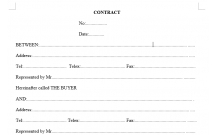
HỢP ĐỒNG XUẤT KHẨU GẠO TIẾNG ANH VÀ TIẾNG VIỆT
6
1.324
427
Mẫu hợp đồng
6
(New)
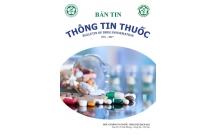
Đánh giá và so sánh khả năng cung cấp thông tin thuốc của một số CSDL...
37
1.222
323
Kỹ thuật
37
(New)
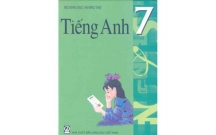
Tiếng Anh Lớp 7
195
1.407
350
Tiếng Anh phổ thông
195
(New)

Bài tập tiếng Anh 7 mới
161
2.393
423
Tiếng Anh phổ thông
161
(New)
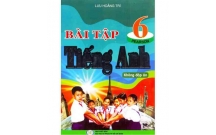
Đáp án bài tập tiếng anh 6
16
866
397
Tiếng Anh phổ thông
16
(New)
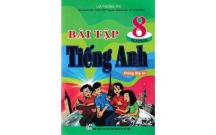
Đáp án bài tập tiếng anh 8
16
1.225
429
Tiếng Anh phổ thông
16
(New)
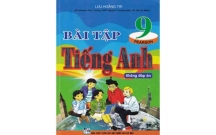
Đáp án bài tập tiếng anh 9
16
1.622
282
Tiếng Anh phổ thông
16
(New)

Lớp 8 - Ôn tập môn tiếng Anh học kỳ 2
10
976
344
Tiếng Anh phổ thông
10
(New)
thông tin tài liệu
Đáp án bài tập tiếng anh 7
Mở rộng để xem thêm
tài liệu mới trong mục này
tài liệu hot trong mục này
tài liệu giúp tôi
Nếu bạn không tìm thấy tài liệu mình cần có thể gửi yêu cầu ở đây để chúng tôi tìm giúp bạn!
xem nhiều trong tuần
Đề thi và lời giải môn xác suất thống kê của trường Học viện ngân hàng
Địa lý 12 Phát triển cây công nghiệp lâu năm Tây Nguyên
Giáo trình Quản trị học của Đại học kinh tế quốc dân
MẪU GIẤY THI A4
Đề thi trắc nghiệm môn quản trị ngân hàng có đáp án
Sinh học 11 MỘT SỐ BIỆN PHÁP ĐIỀU KHIỂN SỰ SINH TRƯỞNG VÀ PT Ở ĐỘNG VẬT VÀ NGƯỜI (P2)
yêu cầu tài liệu
Giúp bạn tìm tài liệu chưa có
×



